[editar] La frustración de Dhruvá, de cinco años de edadEl rey Uttānapāda (hijo de Swaiambhuva Manu) tenía dos esposas: la piadosa Suniti (o Sunrita, hija de Dharma) y su preferida Suruchi. Con ésta tuvo al niño Uttama, y con la piadosa Suniti tuvo al niño Dhruvá. Cuando Dhruvá tenía cinco años de edad, los dos príncipes corrieron jugando hasta el regazo de su padre. Pero, la malvada Suruchi reprendió a Dhruvá por tratar de atraer la atención de su padre cuando no era merecedor, porque no había nacido de ella. Ella además se burló de su situación, y le dijo que se redimiera buscando las bendiciones de Vishnú. Dhruva le pidió a la piadosa Suniti que le explicara quién era Vishnú, y cómo podía conseguir su bendición para obtener el trono de su padre. Suniti le dijo que ella había oído que los sabios se retiraban a los bosques a meditar y experimentar austeridades, para atraer la atención del dios Vishnú. Dhruva decidió irse al bosque a meditar, y Suniti le dio sus bendiciones. [editar] La resolución de DhruváDespués de varios días sentado solo y quieto, pidiendo interiormente al dios que se le apareciera, el sabio volador Nárada se compadeció de él y se le apareció. Dhruva le preguntó si él era Vishnú. Nárada le respondió que no, y el niño replicó que se retirara, que no quería desconcentrarse. Nárada le dijo que era muy joven para afrontar una vida que ni los más alocados sabios se atrevían a experimentar, y trató de que el niño desistiera de esa terrible vida. Sin embargo, la feroz determinación de Dhruvá no tenía límites, por lo que el sabio asombrado le enseñó los rituales y el mantra que le haría lograr su objetivo. El mantra que Nárada le enseñó fue om namó bhágavate vásudevaia (ofrezco reverencias a Bhagaván Vasudeva). En las dos fuentes puránicas se menciona el mismo mantra. [editar] La austeridad sacude al mundoHabiendo sido aconsejado, Dhruvá empezó su penitencia, y no comió ni bebió nada durante seis meses, con su mente fija en el dios Vishnú. La austeridad de esta penitencia sacudió los cielos y Vishnú mismo se apareció ante él, pero el niño no abría los ojos porque estaba aún sumido en su visión interior de la forma de Vishnú que le había descrito Nárada. El dios adoptó otra estrategia: desapareció de la visión interior de Dhruvá. Inmediatamente éste abrió los ojos, y, viendo fuera lo que había estado viendo dentro durante meses sin parar, se postró ante Vishnú. Pero no pudo pronunciar una sola palabra. Entonces Vishnú le tocó la mejilla derecha con su caracola divina y le provocó el discurso. Dhruvá improvisó un hermoso poema de alabanza al Señor en 12 poderosos versos, que en conjunto se denominan Dhruvá stuti (la oración de Dhruvá). En este punto, el Vishnú puraná cuenta esta leyenda ligeramente diferente: Vishnú, satisfecho con la tapasia de Dhruvá, le dijo que pidiera un vara dāna (otorgamiento de deseos). Dhruvá dijo que que él, siendo un niño sin educación, no sabía cantar las alabanzas de Dios, y por lo tanto le pidió conocimiento sobre cómo componer un stuti (himno de alabanza). Otras personas hubieran pedido placeres mundanos o celestiales, o un sabio hubiera pedido moksha (liberación de la cárcel de la reencarnación), pero Dhruvá no tenía ningún deseo personal. La renuncia de todos los deseos se considera esencial en el hinduismo: este es el significado de dhruvá-pada (la posición fija, una especie de «estrella polar» espiritual). Por esa razón los saptarshís (‘siete sabios’) decidieron dar el trono más venerado (en la Estrella Polar) a este niño de seis años de edad. El Dhruvá stuti se menciona en el Vishnú puraná. Es una versión ampliada y mejorada del antiguo Purusha sukta (himno al Varón [Dios]’, de antes del siglo X a. C.) védico. La versión del Dhruvá stuti del Bhágavata puraná es muy diferente. Ante la presencia del dios, Dhruva se olvidó del objetivo de su penitencia, y sólo pidió poder recordar perfectamente la presencia de Dios el resto de su vida. Complacido, Vishnú le concedió el deseo y decretó que el muchacho alcanzara finalmente dhruvá pada (la posición de la estrella polar): se convertiría en un astro, que ni siquiera sería tocado por el pralaia (el cataclismo final, que destruye todos los astros del universo, incluida la Tierra). [editar] El rey DhruváDhruvá volvió a su reino, donde fue bien recibido por su familia, y obtuvo la corona a los seis años de edad. Después de décadas de gobernar su país en manera justa y equitativa, Dhruvá abandonó su cuerpo mortal y se convirtió en la Estrella Polar. [editar] Enlaces externos
DhruvaFrom Wikipedia, the free encyclopedia
 Vishnu appears before Dhruva - A painting by Raja Ravi Varma http://es.wikipedia.org/wiki/Archivo:Ravi_Varma-Dhannarayan.jpg Dhruva, ध्रुव, in Hindu scriptures, was an ardent young devotee of Vishnu, a prince blessed to eternal existence and glory as the Pole Star (Dhruva Nakshatra in Sanskrit) by Lord Vishnu. The story of Dhruva's life is often told to Hindu children as an example for perseverance, devotion, steadfastness and fearlessness. The original sources are Vishnu Purana and Bhagavata Purana, Canto 4. The Rigveda mentions the word Dhruva (meaning both "pole star" and "fixed") dozens of times, and it is uncertain whether the pole star has been explicitly mentioned anywhere in the Vedas. Grihya-Sutra, Mahābhārata, Surya Siddhanta, etc., however, mention Dhruva as the pole star. Pāṇini mentions Dhruva as "a fixed point from which departure takes place".
[edit] Frustration & Resolve of five-year old DhruvaDhruva was born a son of the King Uttānapāda (the son of Svayambhuva Manu) and his wife Suniti (or Sunrita, the daughter of Dharma). The king also had another son Uttama, born to his second queen Suruchi, who was the preferred object of his affection. Once, when Dhruva was but a child of five years of age, the two princes playfully raced towards their father's lap. But, the headstrong Suruchi chided Dhruva and insulted him for trying to woo the attention of his father, when he did not deserve it because "he was not born to her." She further mocked at his plight, by asking him to redeem himself by seeking Vishnu's blessings. Suniti consoled the distraught child, by asking him to take Suruchi's words seriously and to observe penance in meditation of the Lord. She bid him farewell as he set out on a lonely journey to the forest. Dhruva was determined to seek for himself his rightful place, and noticing this resolve, the divine sage Narada appeared before him and tried to desist him from assuming a severe austerity upon himself at such a tender age. But, Dhruva's fierce determination knew no bounds, and the astonished sage guided him towards his goal by teaching him the rituals and mantras. The one mantra which Narada taught and which was effectively used by Dhruva was OM NAMO BHAGAVTE VĀSUDEVĀYA. Vishnu Purana also mentions this same mantra. [edit] Unique World-shaking penanceHaving been advised, Dhruva started his penance, and went without food and water for six months, his mind fixed on the Lord. The austerity of his penance shook the heavens and the Lord appeared before him, but the child would not open his eyes because he was still merged in his inner vision of Vishnu's form described to him by Narada. Lord Vishnu had to adopt a strategy of causing that inner vision to disappear. Immediately Dhruva opened his eyes, and, seeing outside what he had been seeing all along in his mental vision, prostrated himself before the Lord. But he could not utter a single word. The Lord touched his right cheek by his divine conch and that sparked off his speech. Out poured forth a beautiful poem of praise of the Lord in 12 powerful verses, which together are called Dhruva-stuti. Vishnu Purana gives a slightly different account here. When Vishnu was pleased with Dhruva's tapasya and asked him to ask for a varadāna (grant of wishes), Dhruva said that that he (being an uneducated child) did not know how to sing the praise of Lord Vishnu, and therefore asked the varadāna of a knowledge of stuti (hymn in the praise of Vishnu). Other persons would have asked for worldly or heavenly pleasures, or for moksha at most, but Dhruva had no personal desire. Renunciation of all desires is regarded to be essential for eternal peace in Hinduism : this is the meaning of Dhruva-pada (spiritual pole star). That reason why the saptarshis decided to give the most revered seat of Pole Star to this six year old child. The Dhruva-stuti as mentioned in the Vishnu Purana is an extended version of Vedic Purusha-sukta and is quite different from the Dhruva-stuti of Bhagavata Purana. Having spent a long time in the Lord's remembrance he even forgot the objective of his penance, and only asked for a life in memory of the Lord. Pleased by his penance and by his stuti, Vishnu granted his wish and further decreed that the lad would attain Dhruvapada - the state where he would become a celestial body which would not even be touched by the Maha Pralaya, or the final cataclysm. [edit] King DhruvaDhruva returned to his kingdom, to be warmly received by his family, and attained the crown at the tender age of six. After decades of ruling the country in a fair and just manner. [edit] Dhruvaloka locationAll the planetary systems [in material world] take shelter of {Vishnu and thus, also His transcendental abode, Vishnuloka} Dhruvaloka. The totality of these planetary systems are Sisumara, another expansion of the external body of the Supreme Personality of Godhead. Dhruvaloka, the [transcendental] abode of Lord Visnu within this [material] universe, is situated 1,300,000 yojanas from the seven stars. In the planetary system of Dhruvaloka are the planets of the fire-god, Indra, Prajapati, Kasyapa and Dharma, all of whom are very respectful to the great devotee Dhruva, who lives in Dhruvaloka. [edit] See also[edit] External links
Dhruvaarchive.org![[movies]](http://www07.us.archive.org/images/mediatype_movies.gif) Bhagavata Katha Part 4 by Swami Gaurangapada - Nitaai.com Bhagavata Katha Part 4 by Swami Gaurangapada - Nitaai.com with following titles: Part 4.1 - "Kirtana & Daksha Insulted" Part 4.2 - "Daksha Becomes Goat" Part 4.3 - "Narada Tests Dhruva" Part 4.4 - "Dhruva Attains Krishna" Part 4.5 - "Dhruva Fights Yakshas" Keywords: gaurangapada; nitaai; nitaai.com; nityananda; gauranga; god; soul; bhakti; hare; krishna; conciousness; bhagavata; saptaha; daksha; narada; dhruva; yakshas Downloads: 79 Average rating:  (0 review) (0 review)DHRUVA YOGA DHRUVA MAHARAJA MEDITATION ON SRI VISHNU. MUSIC:OM PURNAM BY GEORGE HARRISON AND YAMUNA DEVI FROM RADHA KRISHNA TEMPLE ALBUM. Artwork & music courtesy of The Bhaktivedanta Book Trust International,Inc. http://www.krishna.com Mythology - Balak Dhruva Más de: rajshri Click http://www.rajshri.com to watch more mythology videos Fuentes - FontsSOUV2 SOUV2P.TTF - 57 KB SOUV2I.TTF - 59 KB SOUV2B.TTF - 56 KB SOUV2T.TTF - 56 KB Balaram bai_____.ttf - 46 KB babi____.ttf - 47 KB bab_____.ttf - 45 KB balaram_.ttf - 45 KB ScaGoudy SCAGRG__.TTF - 73 KB SCAGI__.TTF - 71 KB SCAGB__.TTF - 68 KB FOLIO 4.2 inbenr11.ttf - 64 KB inbeno11.ttf - 12 KB inbeni11.ttf - 12 KB inbenb11.ttf - 66 KB indevr20.ttf - 53 KB Disculpen las Molestias
| |||||||||||||||||||||||||||||||
















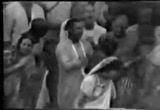
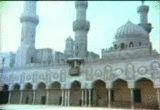
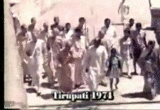
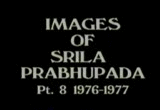
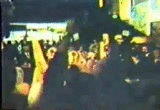
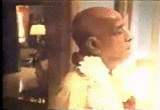



No hay comentarios:
Publicar un comentario